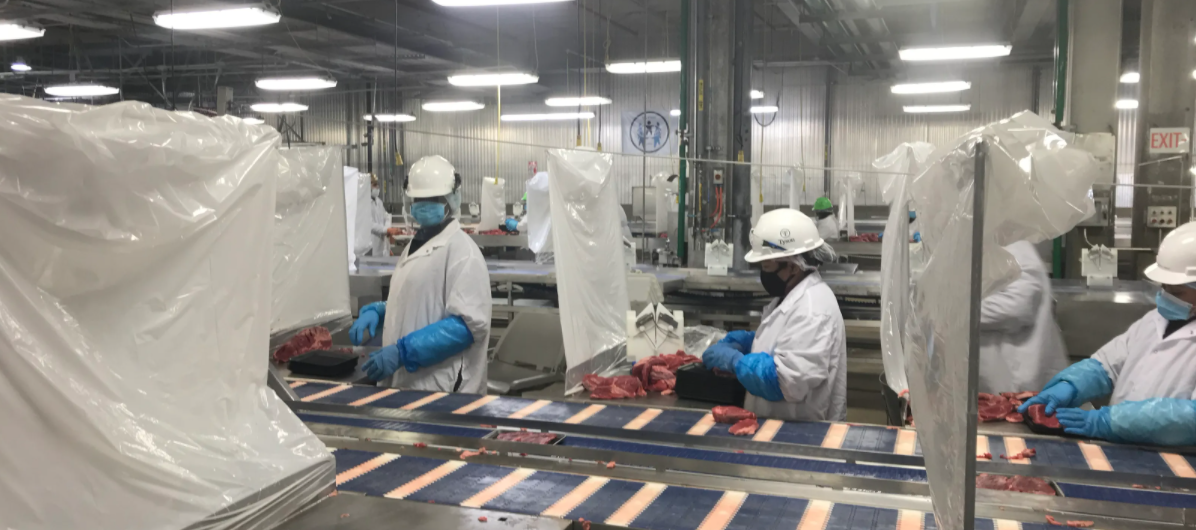What does the politics of gratitude do in our shared public health crisis? In almost all nation-states, essential workers are heroized and appreciated on numerous social media platforms. These campaigns produce particular affect in our traumatic times, and when we send our heartfelt “thank yous,” the politics of gratitude circulates elated feelings of supposed solidarity while obscuring the politics of doing good. Thus, such politics often fail to materialize into concrete political and social transformation. In this textual analysis, I deploy “blood-soaked steamed buns” (人血饅頭), a metaphor used by the famous Chinese novelist and critic Lu Xun in Republic Era China, to think about the vampiric nature of the affective politics of gratitude.
In a well-known novel, Medicine, Lu Xun wrote about the superstition of curing tuberculosis by eating steamed buns soaked in blood. Set in the early Republic Era China (1911-1949), the story narrates the efforts to cure the main character, Hua Xiaoshuang, who suffered from tuberculosis. After unsuccessful attempts, his rich parents eventually bought a steamed bun soaked in the blood of an executed revolutionary, Xia Yu. For them, Xia is a talking point, and the sacrificial blood of Xia is the best cure for their son’s disease. In my interpretation, the metaphor “eating blood-soaked steamed buns,” although sometimes described as being “moralistic,” offers a critique of the senselessness of public belief and the difficulty of critical consciousness at the time of the writing. “Blood-soaked steamed buns” remains in use in Mandurian, serving as the indictment of the vampiric nature of capitalism. However, this metaphor is more than a moralistic critique of profit-making, regardless of human costs. In our social media and affective economic era, steamed buns are important affective placebos mined and valorized in the process of value generation, in which the affective fulfillment of the general population hides the blood-sucking “vampires” known as capital, as Marx once articulated. As the global pandemic renders affective needs ever more present, the cost of feeling good is soaked in the corporeal sacrifices of the front-liners, those who cannot not work.

In post-socialist China, the best examples are the gendered state propaganda of one nurse who returned to work just days after her abortion (Figure 1) and another who stayed to treat COVID-19 patients while being pregnant (Figure 2). In these instances, similar to buns soaked in persecuted revolutionaries’ blood as “medicine” for tuberculosis, gendered bodies are sacrifices offered up as a “cure” to elevate the population from the national trauma of COVID-19, and as the “channel” for the affective circulation of popular gratitude towards medical workers. The affective gratitude towards feminized bodies continues the state socialist practices of romanticizing “sacrifices” and obscures the lack of nationalized free healthcare, the decades-long changes and shifts in the public health sector since it was integrated into global capitalism, the increasing pressure of privatization, and the violence and repressions produced by state capitalism.

These vampiric and cannibalistic tropes are not unique to post-socialist China. In the Canadian context, for example, “clap for essential workers” or “honk for essential workers,” although initiated not directly by the state, are recognitional politics that do not engage with migrant struggles and labor rights. Instead, the affective politics of gratitude costs the lives of frontline workers in cannibalistic ways. Temporary migrant workers in farms and meat factories have been praised and heroized as the COVID-19 cases and mortality rate clime. In Calgary, migrant workers in meat factories have been working in conditions where they are unable to social distance, and life has vanished because of COVID-19.
The gratitude for frontliners’ corporeal sacrifice renders the vampiric extraction of bodily capacities within capitalist production invisible via appreciation. The affective politics of gratitude operates as the process of “eating blood-soaked steamed buns”; the difference lies in the fact that these “steamed buns,” the essential workers, are honored–but simultaneously offered up for the affective fulfillment of the workers who are able to stay home.
At the end of Medicine, Mother Hua and Mother Xia are at the cemetery to see their sons. It is later revealed to the readers that Xia Yu and Hua Xiaoshuang are buried beside each other, separated by a narrow path. It is not clear if both women recognize each other, yet the fact that their sons’ lives are entangled even after death requires contemplating. I tend to believe that Lu Xun offer us a way to think about social relations in tragedy: we eventually return to the land, what we think might separate us is just spatial lines on the surface, while deep down, lives merge. In the time of COVID-19, frontline workers are indeed risking their lives, and many are doing so because of the nature of their work (e.g., nurses) or because of the shortage of labor (e.g., farm workers or sanitation workers). An affective politics that does more than recognition would center the deeply embedded relations we share and would fight for what front-liners need. After all, our bodily sovereignty and capacities are the effect of laboring by, for, or with others. What are we if we are not the relations we inhabit? Are we, sitting at home, ready to labor for our collective life?


